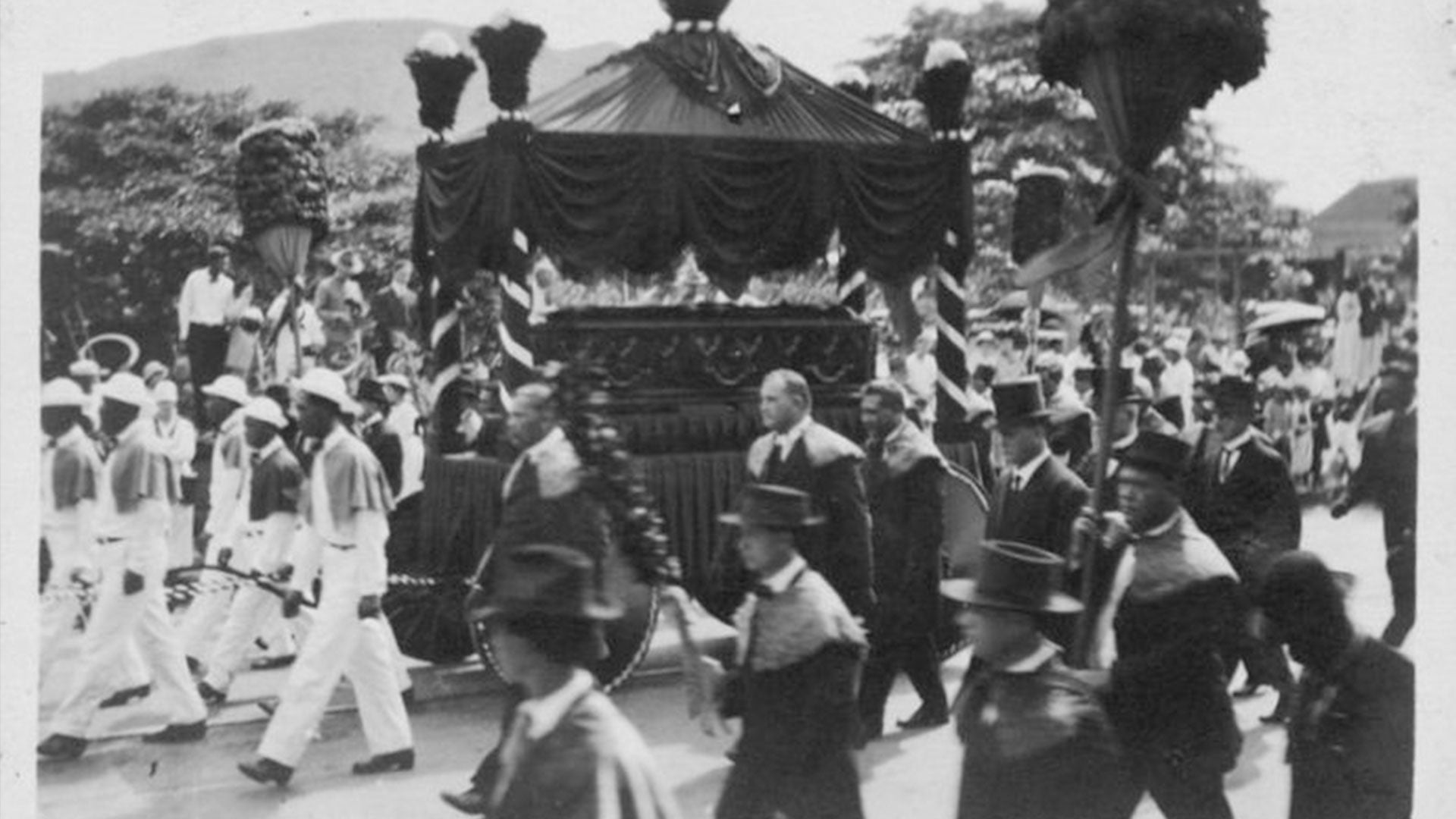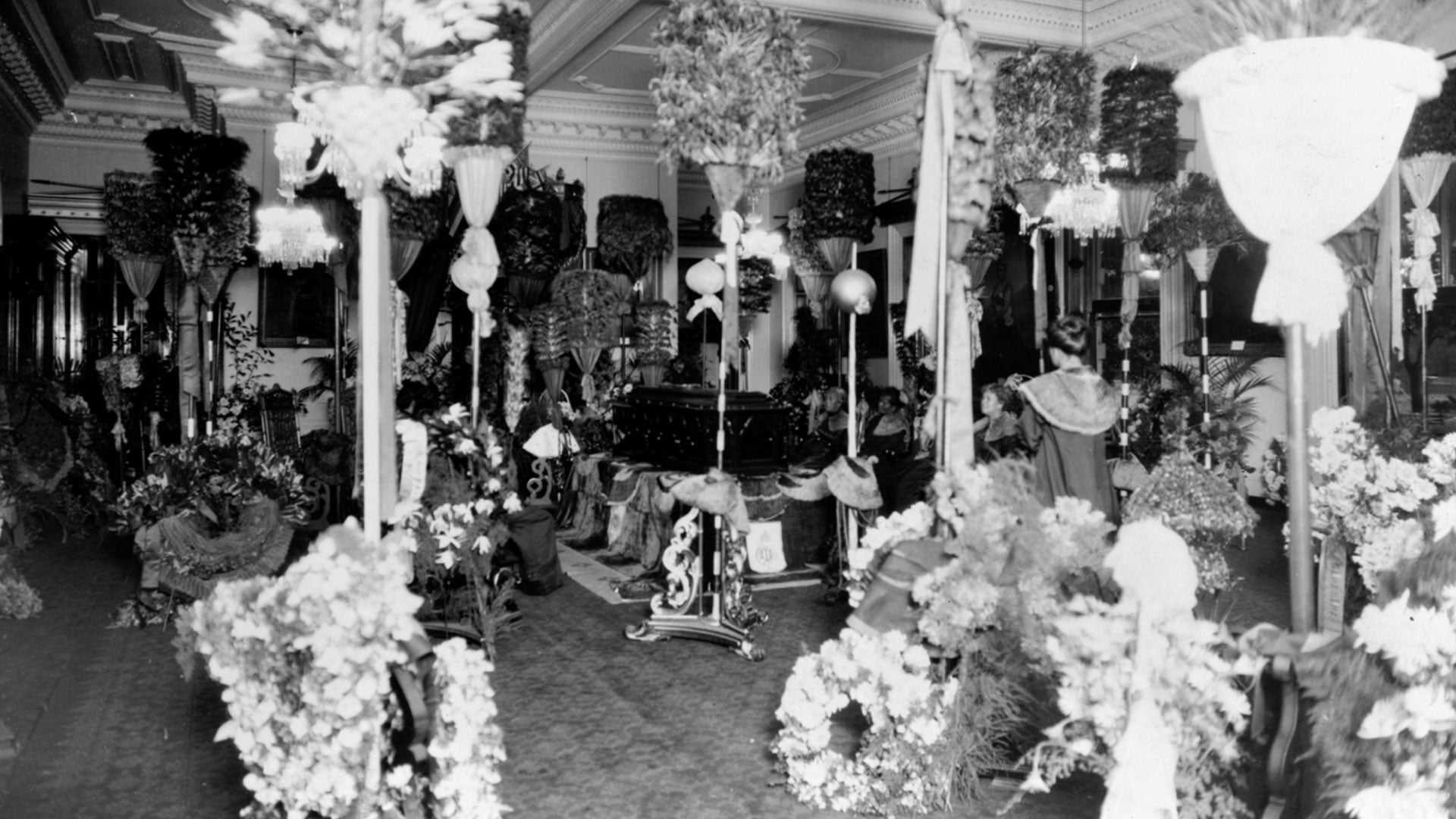Queen Liliʻuokalani: Hawaiʻi's Last Monarch and Enduring Legacy
Queen Liliʻuokalani, the last monarch of the Hawaiian Kingdom, was a woman of grace, resilience, and unwavering dedication to her people. Her life and legacy are woven into the fabric of Hawaiʻi's history, marked by both triumph and tragedy, and her spirit continues to inspire generations of Hawaiians and visitors alike.

Photo Credit: Liliʻuokalani Trust
Early Life and Ascension to the throne
Born Lydia Liliʻu Loloku Walania Kamakaʻena on September 2, 1838, in Honolulu, Hawaiʻi, Liliʻuokalani was the youngest child of high chiefs Caesar Kaluaiku Kapaʻakea and Analea Keohokalole. Raised in the traditions of her Hawaiian heritage, she attended the Royal School, where she excelled in music and literature.
In 1891, following her brother's death, King Kalākaua, Liliʻuokalani ascended to the throne as queen of Hawaiʻi. Determined to uphold the sovereignty and independence of her kingdom, she embarked on a mission to implement constitutional reforms aimed at empowering the native Hawaiian population.
Overthrow and Imprisonment
Liliʻuokalani's efforts to promulgate a new constitution met resistance from foreign interests, particularly American sugar planters and politicians who sought to annex Hawaiʻi to the United States. In 1893, a coup, supported by the United States government and American businessmen, forcibly removed her from power, plunging Hawaiʻi into political turmoil.
Despite her peaceful protest and appeals for justice, Liliʻuokalani was ultimately forced to yield to the provisional government and was imprisoned in 1894 in her palace for nearly eight months. Though she was eventually released, overthrowing the Hawaiian monarchy marked a dark chapter in history and forever changed the course of its destiny.

The Funeral of Queen Liliʻuokalani - Photo Credit: University of Hawaiʻi at Mānoa
Legacy of Leadership and Resilience
Throughout her life, Liliʻuokalani demonstrated remarkable strength and resilience in adversity. Despite losing her throne and the erosion of her kingdom's sovereignty, she remained steadfast in her commitment to her people and culture.
After her release from imprisonment, Liliʻuokalani continued to advocate for the preserving Hawaiian culture and traditions. She composed numerous songs, including the beloved "Aloha ʻOe", an enduring symbol of Hawaiʻi's aloha spirit.
In 1898, Hawaiʻi was formally annexed by the United States. Still Liliʻuokalani never wavered in her belief that the Hawaiian kingdom would be restored one day. She spent her remaining years dedicated to charitable work, education, and the perpetuation of Hawaiian arts and culture. She died in 1917, giving all her money to the children of Hawaiʻi.

Throne Room of ʻIolani Palace with Liliʻuokalani lying in state, 1917, Library of Congress - Photo Credit: University of Hawaiʻi System
Honoring her Legacy
Today, Queen Liliʻuokalani is revered as a beloved figure in Hawaiian history, revered for her courage, compassion, and unwavering commitment to her people. Her legacy lives on in the hearts of Hawaiian and in the enduring traditions of the islands.
From the majestic statue that stands in her honor in downtown Honolulu to the cultural institutions and programs that bear her name, Liliʻuokalani's spirit continues to inspire a sense of pride and resilience in all who call Hawaiʻi home.
As we reflect on her life and legacy, let us strive to uphold the values of Aloha, justice, and sovereignty that she held dear, ensuring that Queen Liliʻuokalani's legacy remains a guiding light for future generations of Hawaiians and the world.

Hinterlasse einen Kommentar
Diese Website ist durch hCaptcha geschützt und es gelten die allgemeinen Geschäftsbedingungen und Datenschutzbestimmungen von hCaptcha.